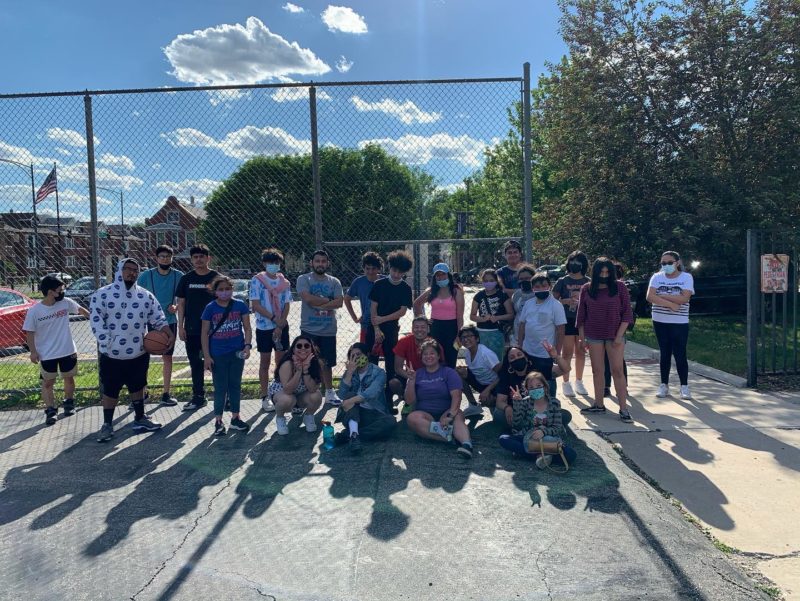At the corner of 28th and Hamlin in Chicago’s Little Village neighborhood sits Universidad Popular (UP), a vibrant tavern-turned-community center dedicated to “education with, by, and for the people.” The Center’s work is grounded in the educational philosophy of Latin American educator Paulo Freire, promoting community empowerment through participatory learning. This is the Foundation’s first year of partnership with UP, and we are interested in exploring the ways in which different pedagogical models, like popular education, can support the academic, social, and emotional development of young people growing up on the West Side of Chicago.
On a steamy July afternoon when at least one fire hydrant was spraying full blast in the neighborhood, I had the opportunity to speak with three students who take part in Universidad Popular’s youth education programming called UPtoYouth. Diego, a rising high school senior, has participated in UP’s programs since middle school and now serves as an intern. Rafael will enter high school as a freshman this August, and has been an UPtoYouth participant since fifth grade. Jorge is entering his junior year and is relatively new to UP’s programs, having been involved for a year.
In the short break between Coding Club and Journalism Club sessions, we chatted about their experiences with UPtoYouth programs. Karen Guadarrama, UP’s Youth Program Coordinator, also joined our conversation and translated for Jorge. I urged the students to bear with me since I’ve never been in a Journalism Club, but I promised to try my best.
How did you all find out about the programs here?
Diego: I found this program because I live across the street.
Jorge: My cousin, Pablo, told me.
Rafael: My brother told me about it—which is his cousin, Pablo.
Molly: Pablo, he got the word out!
Which UPtoYouth programs are you participating in right now?
R: All of them! That’s coding, biking, journalism, gardening, boys talk, field trips. For me, I also have work hours.
Karen: We have another program called “junior staff.” Because Rafael’s been here longer, he helps me with other administrative tasks.
R: I did all the field trip forms by myself.
(Rafael pulls up the dozens of field trip forms he’s created on his phone.)
M: Wow! Very nice. Those administrative skills are so helpful to know.
Diego, can you explain your role as an intern? What are you doing day to day?
D: I help the different program get the materials they need for the youth. In running club, I’m the one who carries the bags and does the heavy lifting. Every Friday, I do daily check-ins with all the kids.
What are your favorite UP activities?
J: Biking and running. I feel most comfortable in those activities.
D: I like running club. I’ve always liked sports. I’m an athletic type of person.
R: For me, that’s coding, journalism, biking, boys talk, gardening…
M: You like everything, Rafael!
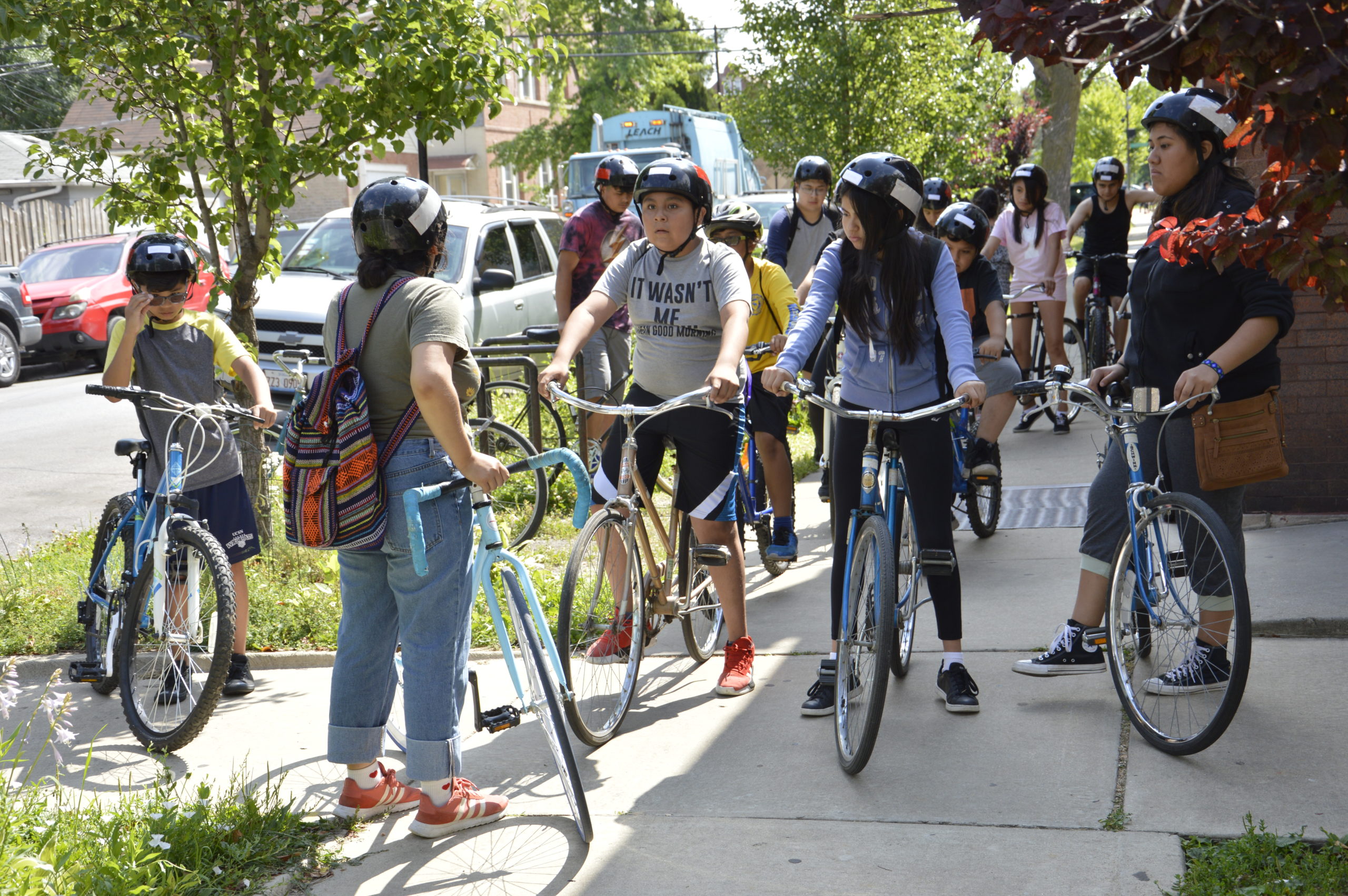
I know it’s still summer and nobody wants to think about school yet, but I’m curious if you feel like there are things you learned this summer that you’ll be able to take back into the school year with you?
J: Coding, technology.
R: Journalism and coding. I’m learning better wording and grammar. I’ve learned how to make wording bigger and smaller, how to automatically put in an ampersand, how to make a heart.
For people who aren’t familiar with UP’s youth programs, what would you want them to know?
J: That it’s a really nice experience to be here and I would recommend for them to come. It’s an option for youth to do positive things instead of negative things like drugs or gangs.
R: I would say it’s better afterschool than school afterschool. I haven’t seen a school doing biking lessons.
M: Yeah, you get to do a lot of learning through experiences outside of the building.
What are you all looking forward to over these last weeks of summer? Any upcoming program or activity that you’re excited about?
J: The arcade and the water park!
D: I’m looking forward to the arcade, but that’s obvious, so I’ll say I’m excited about the community garden. I like smelling flowers, the white rose especially, like la rosa de Guadalupe.
K: We’re going to four community gardens and they are all in Albany Park, so this is a community exploration trip. We’re exploring how different communities run their own garden spaces.
Why do you come back to UP? What do you love about being in this place?
R: Cause it feels like home. It feels like a second home because Karen lectures me a lot—she’s like my mom. The rest are also family. There are a lot of moms—and dads. That’s mostly it.
J: For me, I’ve gotten to see new places. This summer was my first time in Chinatown and I had never walked downtown or been to a beach in Chicago before.
D: I feel like all the staff, all the youth are friendly. All around me, there’s positive energy.
After our conversation, Executive Director Elio DeArrudah expressed his pride in the tremendous growth of these three young men. Collectively, these three students have encountered intensive mental health challenges, learning disabilities, police confrontations, and living in the U.S. without parents, any one of which has the potential to derail a young person’s trajectory. And these are precisely the students that UP is hoping to reach. “While many organizations tend to go for the cream of the crop, I must say that we choose to do the opposite of it, knowing fully well the quandaries of working with the so-called hard-to-recruit, hard-to-retain, hard-to-engage, and, consequently, hard-to-teach grammar schooler,” explains Elio. Yet with the advocacy and guidance of UP staff, these students are charting a successful path for themselves. As Elio reflected on the student who needed mental health intervention for ideation of extreme violence, he shared, “To hear him now bragging about his school grades, his passion for sports, and witnessing the easiness of his rapport with other kids is really rewarding.”
To learn more about Universidad Popular’s programs or to support their work, please contact Abraham Celio, Program Director, at acelio@universidadpopular.us.
—Contributed by Molly Truglia, Program Associate
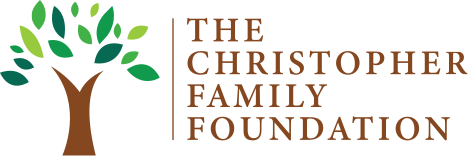

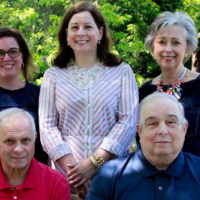 About Us
About Us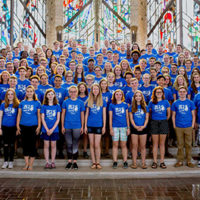 Programs
Programs